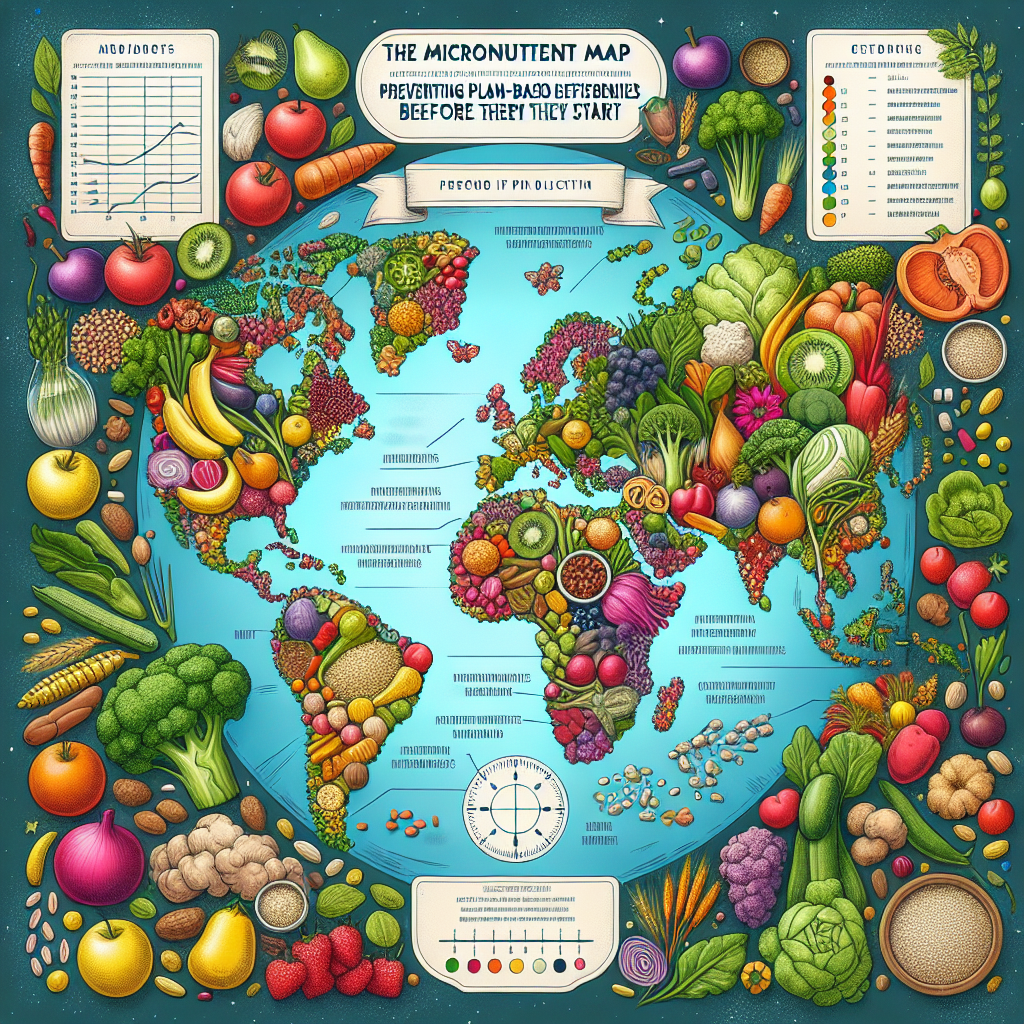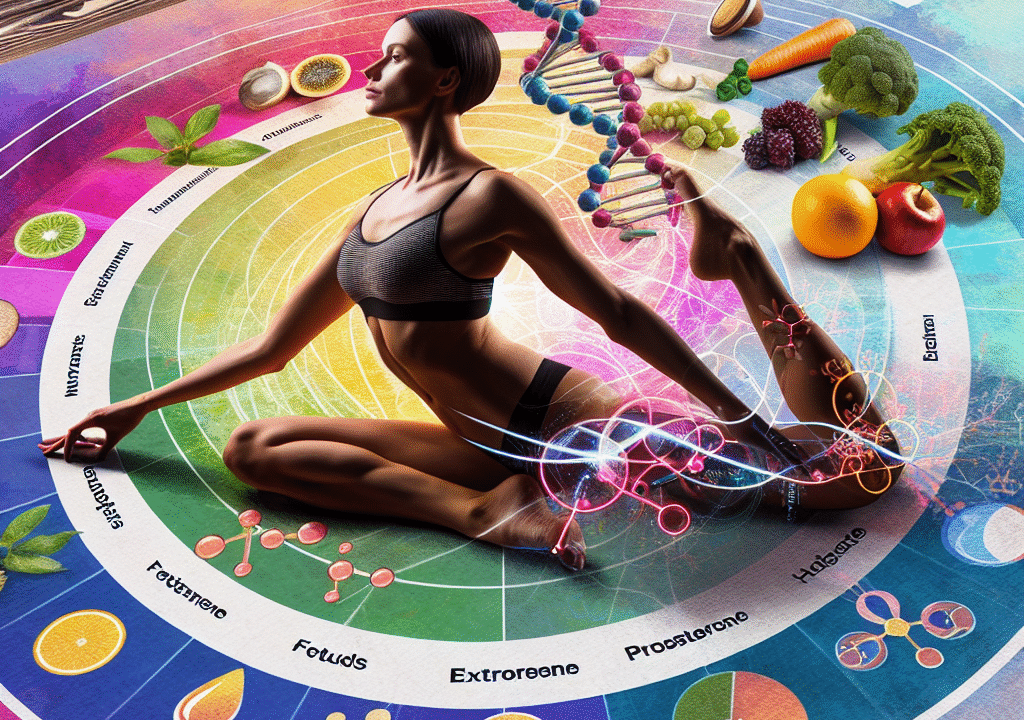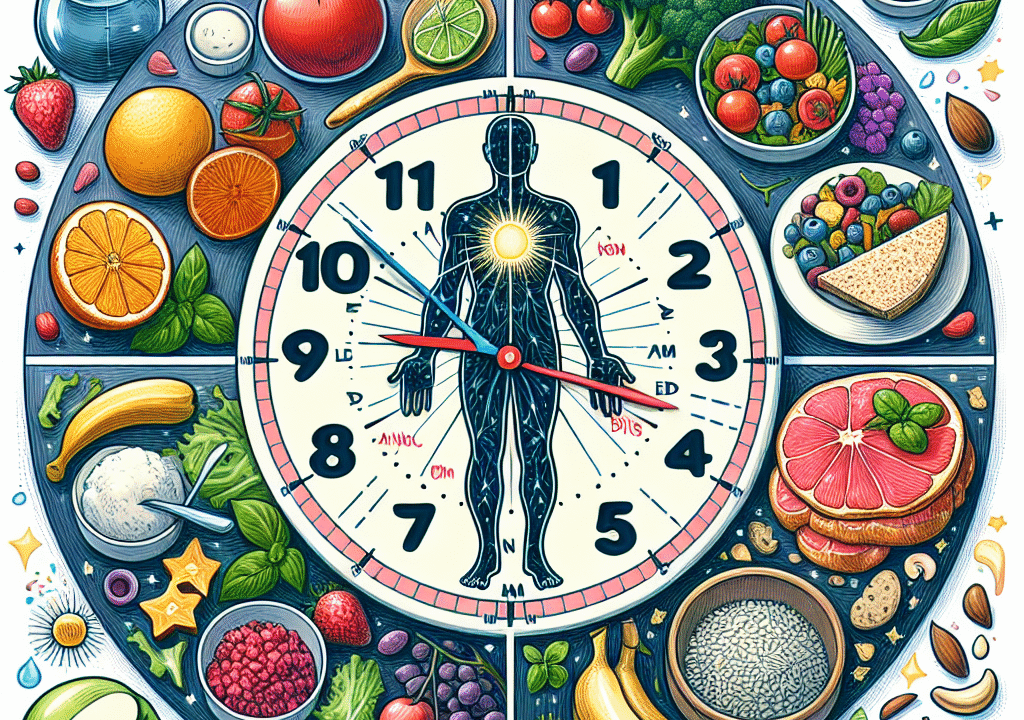
Introduction: Why Nutrient Planning Matters for Plant-Based Diets
As more individuals shift to plant-based diets for health, environmental, and ethical reasons, it’s increasingly important to ensure meals are nutritionally balanced. A 2022 Gallup poll found that 23% of Americans report eating less meat than ever before. While this trend offers several health benefits—including a 25% lower risk of heart disease, according to the Journal of the American Heart Association—it also requires thoughtful planning to prevent nutritional deficiencies.
Enter the “micronutrient map,” a powerful strategy designed to help plant-based eaters identify and fill nutrient gaps before they lead to health concerns. In this guide, we’ll break down the essential vitamins and minerals every plant-based eater should prioritize, how to source them, and which supplements may be necessary.
Let’s explore the nutritional essentials that help you thrive—not just survive—on a plant-based lifestyle.
Understanding Micronutrients: Why They Matter
Micronutrients, including vitamins and minerals, may be needed in small quantities, but their impact on the body is substantial. These nutrients are critical for:
– Strengthening the immune system
– Supporting bone and dental health
– Producing energy and red blood cells
– Regulating neurological functions
While available in various foods, some micronutrients are more bioavailable—meaning they’re better absorbed—through animal products. Therefore, careful planning is essential for those following plant-based diets.
Nutrition expert Dr. Michael Greger, author of How Not to Die, states: “A well-planned plant-based diet can contain all essential nutrients, but certain ones, like B12 and Omega-3s, need special attention.”
Vitamin B12: Essential for Brain and Nerve Health
Vitamin B12 is crucial for red blood cell formation, DNA synthesis, and nerve function. Unfortunately, it is not naturally present in plant foods.
Best plant-based sources include:
– Fortified plant-based milks and breakfast cereals
– Nutritional yeast labeled as B12-fortified
– B12 supplements such as cyanocobalamin or methylcobalamin
Dietitian Taylor Wolfram, MS, RDN, emphasizes, “Of all nutrients, B12 is the most important to supplement on a vegan diet. Deficiency can cause irreversible nerve damage.”
Recommended intake: 2.4 micrograms per day. Most supplements provide significantly more, and the body simply excretes what it doesn’t need.
Iron: Vital for Oxygen and Energy Transportation
Non-heme iron, the type found in plants, is not absorbed as efficiently as heme iron from animal sources. However, consuming vitamin C alongside iron-rich foods can enhance absorption by up to 300%, according to the National Institutes of Health.
Best sources include:
– Lentils, quinoa, tofu, and tempeh
– Pumpkin seeds, spinach, and blackstrap molasses
– Fortified cereals
Helpful tip: Pair your iron sources with foods high in vitamin C like bell peppers or citrus fruits. Avoid tea or coffee during meals, as they can hinder iron absorption.
Zinc: Supports Immunity and Cellular Repair
Zinc plays a significant role in cell growth, immune function, and wound healing. However, phytates found in some plant foods can inhibit zinc absorption.
Top plant-based sources include:
– Legumes such as chickpeas, black beans, and lentils
– Whole grains like oats, quinoa, and brown rice
– Nuts and seeds, including pumpkin seeds, sunflower seeds, and cashews
Improving absorption: Soaking or fermenting grains and legumes can significantly reduce phytate levels.
Recommended daily intake: 11 mg for men and 8 mg for women. A supplement may be helpful if you’re consistently falling short.
Calcium: Essential for Bones and Beyond
Calcium is best known for maintaining strong bones but also supports muscle function and heart health. Many plant-based eaters fail to meet daily calcium needs without a plan.
Calcium-rich options include:
– Calcium-set tofu
– Fortified soy, oat, or almond milk
– Vegetables such as kale and bok choy, plus tahini
Pro tip: While greens like spinach and beet greens contain calcium, they also contain oxalates, which block calcium absorption. Stick to low-oxalate sources when aiming to boost intake.
Recommended calcium intake: 1,000 mg per day for most adults.
Omega-3 Fatty Acids: Brain and Heart Function
ALA (alpha-linolenic acid) is the primary plant-based form of omega-3s. The body can convert a small amount of ALA into the more active forms EPA and DHA, which are vital for brain, heart, and eye health.
Top plant-based sources include:
– Ground flaxseeds and chia seeds
– Walnuts and hemp seeds
– Algal oil supplements containing vegan DHA and EPA
Note: The conversion rate from ALA to DHA and EPA is low. The American Journal of Clinical Nutrition reports less than 10% of ALA converts to EPA, and under 5% converts to DHA.
To ensure adequate levels, a vegan omega-3 supplement, such as those derived from algae, is highly recommended.
Vitamin D: The Often-Missing Sunshine Vitamin
Vitamin D aids calcium absorption and supports bone and immune health. People who live in northern climates or spend most of their time indoors may not get enough from sunlight alone.
Best vegan sources include:
– Fortified cereals and plant-based milks
– UV-exposed mushrooms
– Vegan Vitamin D2 or D3 supplements
Health experts recommend maintaining blood levels of 25(OH)D at 30 ng/mL or higher. The general guideline is 600–800 IU per day, although some suggest up to 2,000 IU, especially during winter months.
Iodine: Crucial for Thyroid Function
Iodine is necessary for thyroid hormones, which regulate metabolism and energy. Many plant-based diets fall short, depending on location and choice of foods.
Plant-based iodine sources include:
– Iodized salt (1/4 teaspoon provides about 70 micrograms)
– Seaweed varieties like nori or dulse
– Iodine-containing supplements or multivitamins
Caution: Some seaweeds, such as kelp, can contain excessive iodine—use them in moderation. Aim for an average of 150 micrograms daily, in line with WHO recommendations.
Making Micronutrient Planning Realistic and Sustainable
While the list of nutrients to monitor may seem long, building a balanced plant-based diet doesn’t need to be overwhelming. The key lies in informed, consistent choices.
Practical strategies include:
– Using a food tracking app like Cronometer to monitor nutrient intake
– Rotating your plant-based proteins and vegetables for variety
– Choosing fortified products when convenient
– Keeping annual checkups to track levels of B12, iron, and vitamin D
Trusted sources—such as the Academy of Nutrition and Dietetics—can offer reliable guidance. Consulting a registered dietitian (RDN) can also help tailor a nutrition plan to your needs.
Explore Easy Supplement Options
To simplify your supplement routine and fill critical nutritional gaps, consider exploring high-quality plant-based supplements. Prioritize those that offer:
– Vitamin B12 (cyanocobalamin or methylcobalamin)
– Omega-3s from algae sources
– Vitamin D3 from lichen or vegan D2 forms
Sites like edrugstore.com offer convenient access to a range of clean, vegan supplement options to support your overall wellness.
Conclusion: Thrive with Confidence on a Plant-Based Diet
A plant-based lifestyle is a powerful choice for your health and the planet—but it takes more than just avoiding meat and dairy. It requires a knowledge-based approach to ensure you’re getting all the essential nutrients your body needs.
By using this plant-based micronutrient map, you can make informed decisions, prevent deficiencies, and maintain optimal health for the long run.
Remember: Prevention is better than correction—especially when it comes to your well-being. Begin mapping your nutrition today and build a lifestyle rooted in mindfulness, balance, and vitality.
Looking to optimize your nutrient intake? Explore key plant-based supplements at edrugstore.com and take the next confident step in your wellness journey.
References
1. National Institutes of Health (Office of Dietary Supplements). Micronutrient Fact Sheets. https://ods.od.nih.gov/factsheets/list-all/
2. American Journal of Clinical Nutrition. “Conversion of ALA to EPA & DHA.” https://academic.oup.com/ajcn
3. Harvard Health. “Calcium and Vitamin D: What You Need to Know.” https://www.health.harvard.edu/staying-healthy
4. Academy of Nutrition and Dietetics. “Vegetarian Nutrition.” https://www.eatright.org
Have your own plant-based tips or favorite supplements? Share them in the comments below as we build a community of well-nourished plant-powered individuals.


